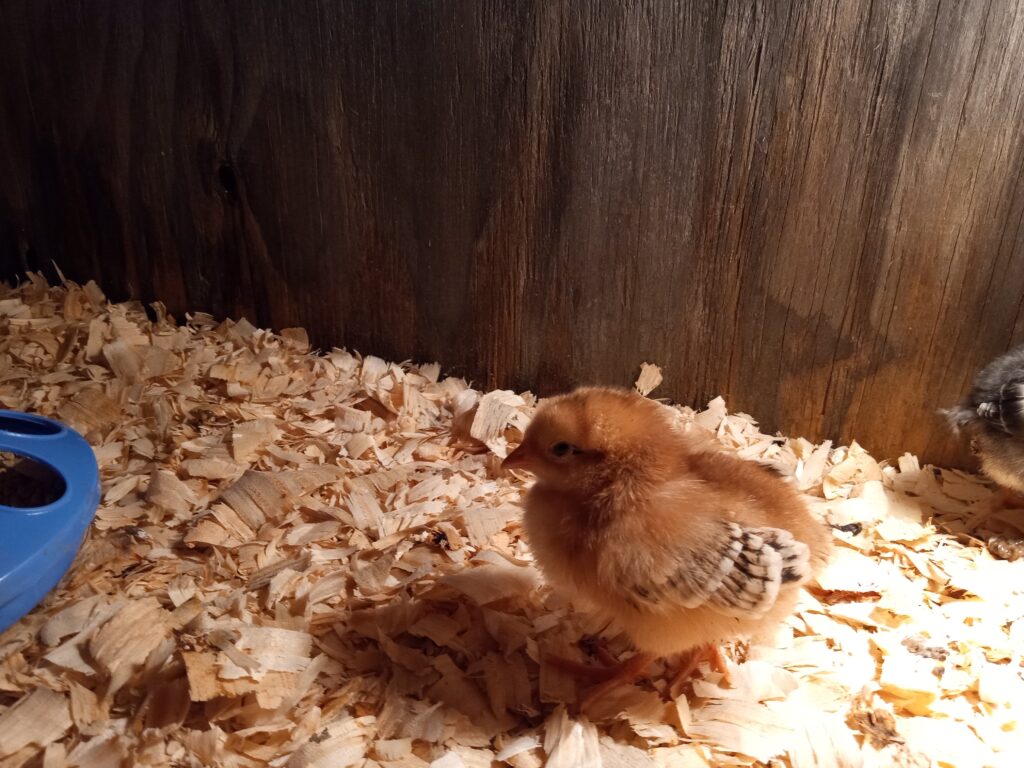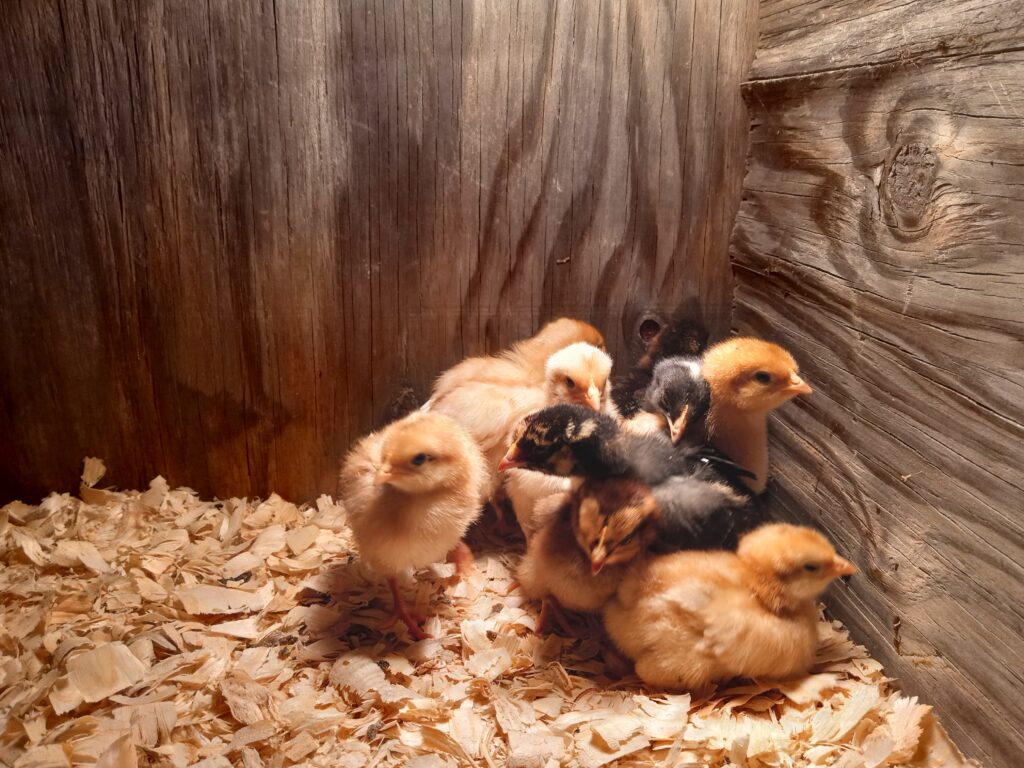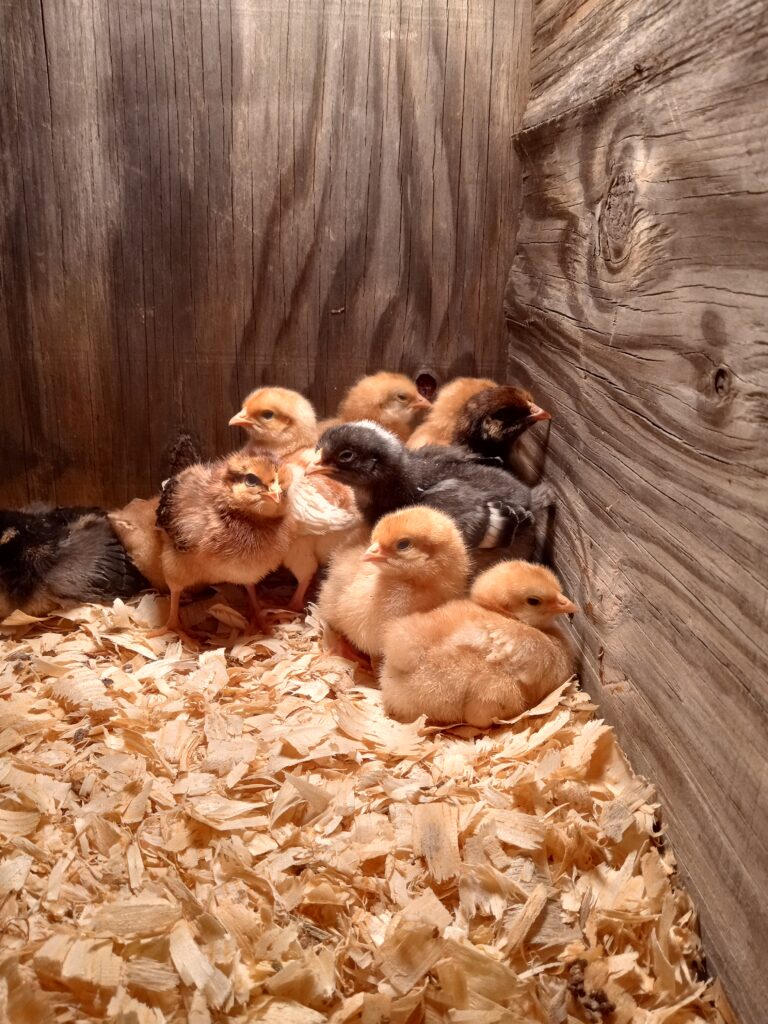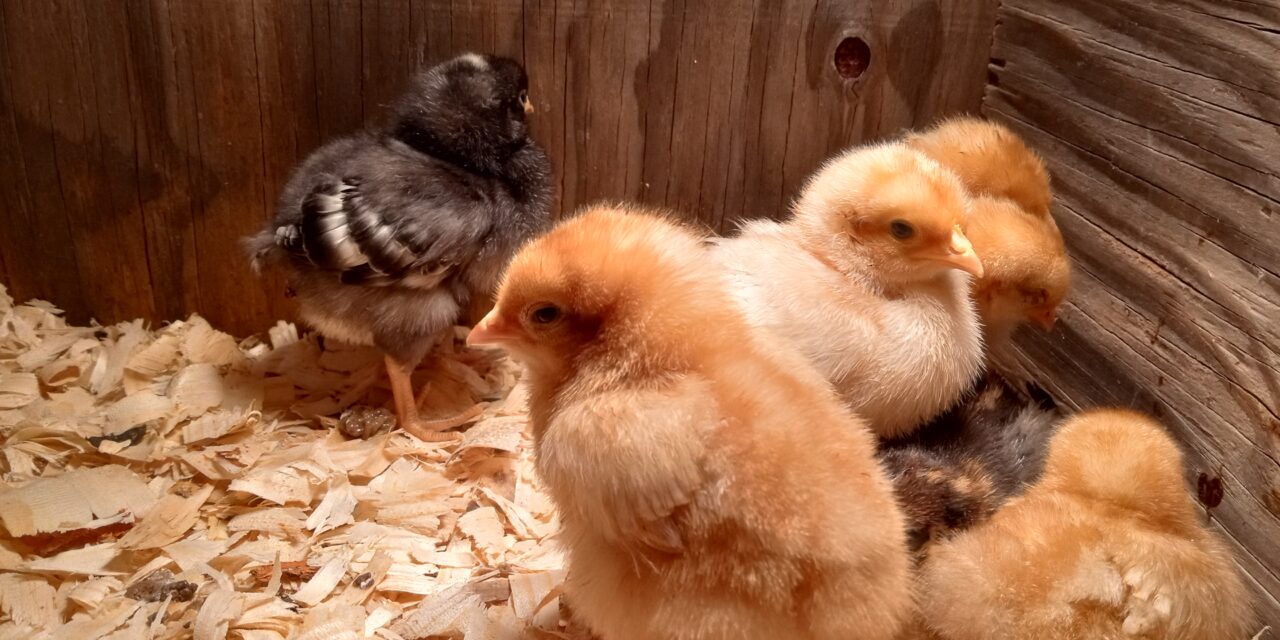For a growing number of residents, that new life is in the form of baby chicks. As “Backyard Birding” continues to grow in popularity, many communities are amending or passing laws that allow residents to raise chickens. With most breeds laying an average of 3-4 eggs per week, it’s an excellent opportunity to put your own food on the family table.
Our family has been raising egg laying hens for some time and we decided to add more this year. Our original flock consists of: Isa Browns, Jersey Giants, an Orpington, an Australorp, and an Americana Rooster. Along with our dog, the rooster helps protect our flock while they’re out in the yard free ranging. Isa Browns are known as reliable producers of large brown eggs and are friendly. The Jersey Giants and Australorp both produce brown eggs with the Jersey’s being a large and the Australorps a medium. The Jersey Giants are a dual-purpose bird, being recommended for meat as well. Our Orpington lays eggs that have a light greenish tint to a brown shell. Most Orpingtons lay light brown eggs. All of them are nutritious and delicious.

This year we’re adding more Isa Browns and two new breeds. The first is the Barred Rock “Plymouth Rock.” These birds produce medium to large, light brown eggs. They are known to be friendly and are also suitable for meat production. The Barred Rock was very popular during the Great Depression. They were used to keep both eggs and meat on the table. The other new breed we’re adding is the “Easter Egg.” These birds are a mixed breed, often referred to as the “mutts” of the chicken world. As their name implies, the breed can lay a mix of colors ranging from green, to blue, to red. However, each hen will only lay one color. If you’re looking for an assortment, you should get multiple hens to improve your chances. These birds are known to be friendly and curious.
Raising poultry does come with slight risks but most of those are easily mitigated with good hygiene and keeping a clean coop. Using straw or wood flakes in the coop and nesting areas will help make cleaning easy. Proper hand and egg washing will go a long way towards preventing the transmission of any dangerous germs. If you notice a bird behaving oddly or one that looks sick, call a veterinarian.

As for chicken food, we feed our birds name brand pellets from the feed store and allow them to forage naturally outside of their coop. Supplemental food can include specialty blocks, meal worms and other “treats.” Chickens are omnivores. Ours have eaten everything from snakes they’ve caught to cherry tomatoes from the garden. For the young ones though, it’s best to start them on special chick starter food, which can be found most places selling chicks. This food has the specific nutrients needed to ensure your birds grow healthy. Small chicks will also need a heat lamp to keep them warm until they’re larger.
Raising poultry can be a fun and rewarding experience. As Springtime rolls through Newaygo County, think about adding a few new, chirping lives to your homestead.
Jason Fulton






